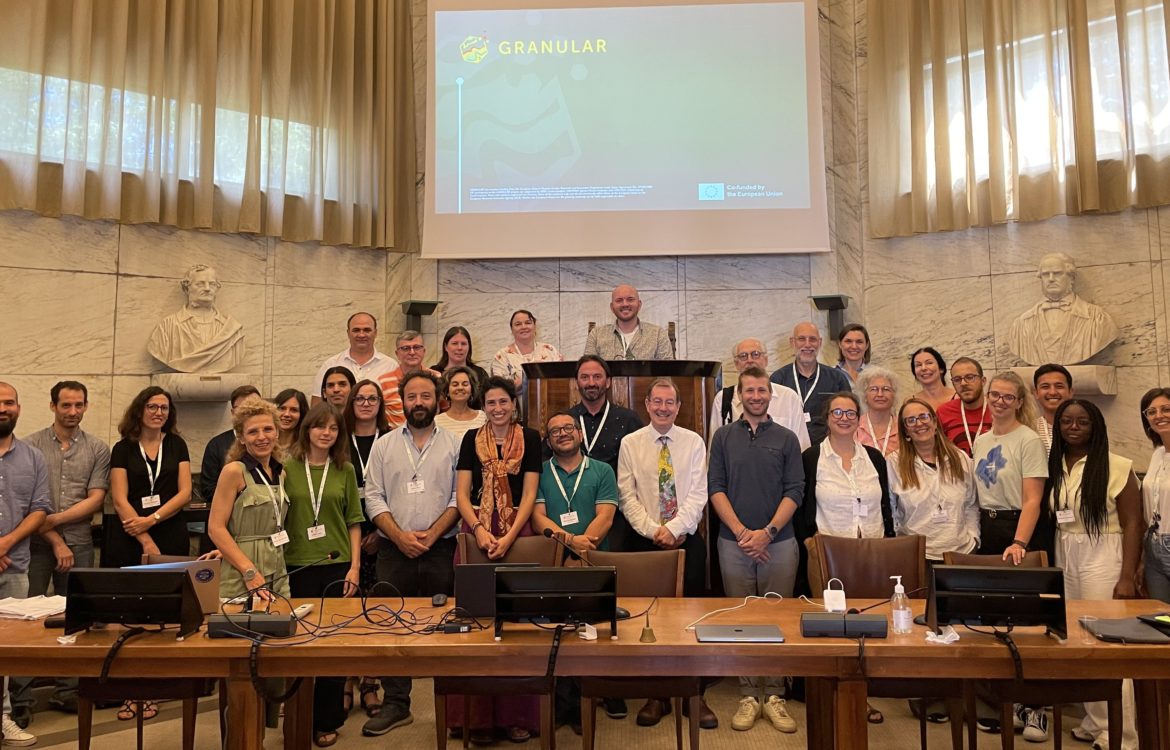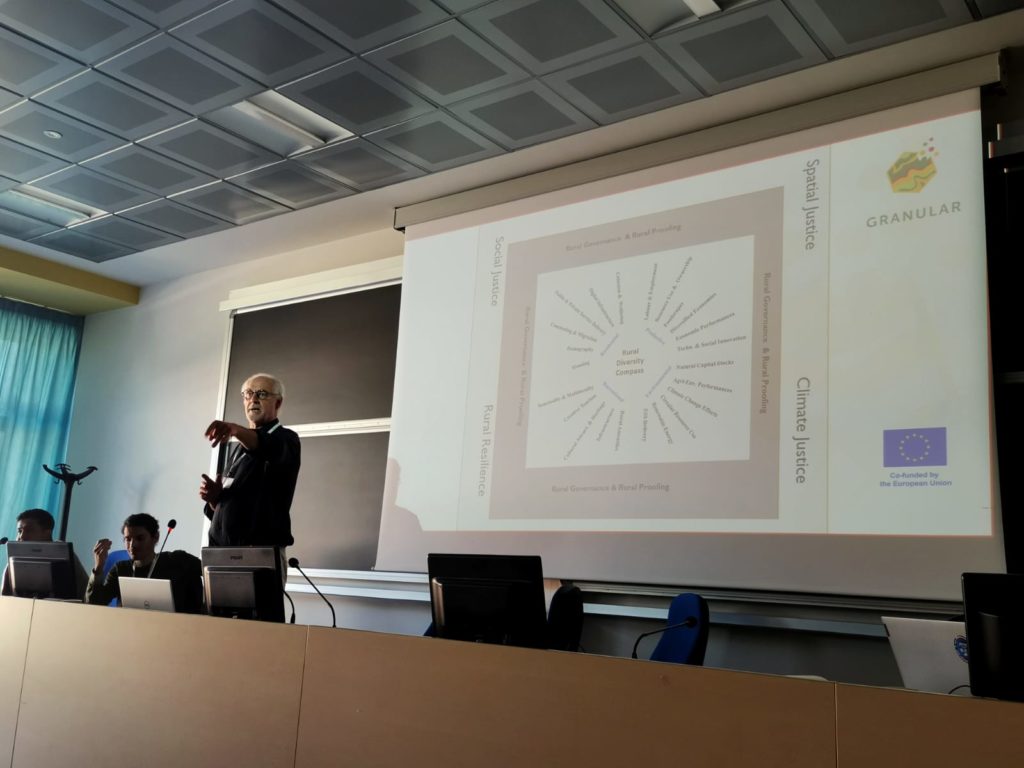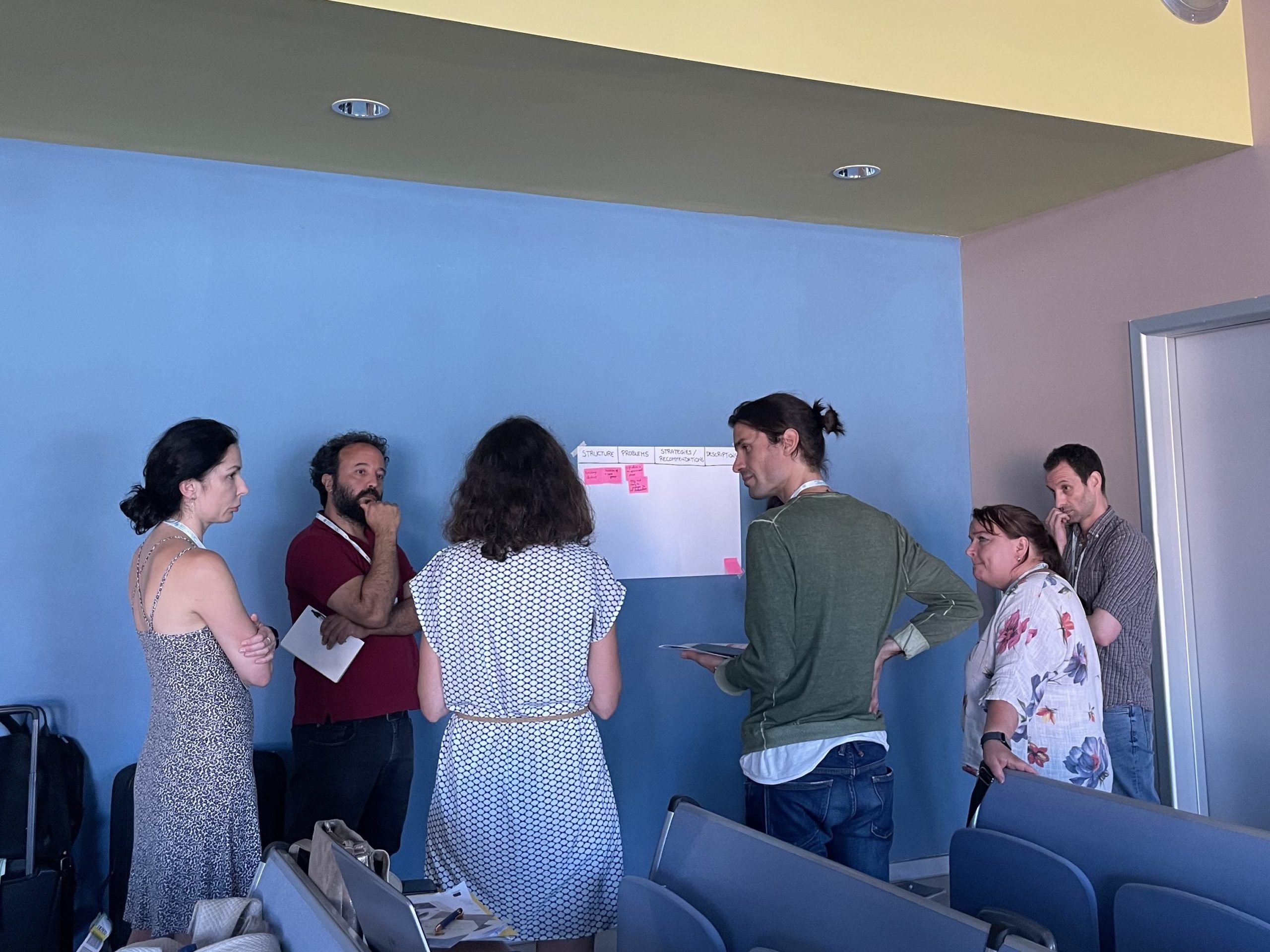
Insights from the two-day GRANULAR Reflexive Workshop in Pisa
Authors: Fabiana Stortini, Oybek Norboev and Tommaso Trinchetti
As the leader of Work Package 6 (WP6) in the GRANULAR project, the PAGE (Pisa Agricultural Economic Research Group) team at University of Pisa (UNIPI), organized a reflexive workshop in Pisa, Italy, on June 27-28, 2024. This event brought together several partners, Living Labs (LLs) and Replication Labs (RLs) to share insights, reflect on progress, and strategize future actions.
The GRANULAR project, led by Mediterranean Agronomic Institute of Montpellier (IAMM), aims to develop innovative datasets and methodologies to enhance understanding of the unique characteristics and dynamics of rural areas. This enhanced understanding empowers rural stakeholders to recognize the distinct features and diversity of their regions, pinpoint major challenges, and formulate customized, place-specific policies to effectively address those challenges. To do this, from its start the project has seen the active involvement of Living Labs, and in a second phase of the Replication Lab to test and validate data and indicators from Living Labs and project partners.
The workshop aimed to bridge the gap between research and local needs, bringing together seven Living Labs (LLs) and eight Replication Labs (RLs) for two days of discussions and presentations to reflect on the activities carried out during the first period of the project and share the future steps.
The main aims of the workshop
- Reflecting on local needs to support Living Labs’ Action Plans
- Sharing findings between Living Labs and Replication Labs
- Gaining insights into the Rural Proofing Methodology and Rural Compass Prototype
- Sharing tips for communication activities

The first day of the workshop set the stage with a comprehensive overview of the GRANULAR project presented by IAMM and UNIPI. This session provided a foundational understanding of the project’s progress and future directions, emphasizing the importance of aligning research efforts with the actual needs of the involved rural communities. A key highlight of the day was the introduction of the Rural Compass Prototype by Wageningen University and Research (WUR). This innovative tool sparked lively discussions on its potential applications and how it could enhance the project’s impact. In addition, participants engaged in interactive sessions, sharing their initial assessments and contributing to the action plan discussions facilitated by UNIPI. These sessions ensured that all team members were aligned on the objectives and expectations, fostering a collaborative environment.
The second day of the workshop deepened the dialogue with sessions focusing on data and indicators, led by IAMM and UNIPI. These sessions underscored the critical role of accurate data in evaluating the project’s outcomes and informed our strategies moving forward. These discussions provided valuable insights into how we can effectively apply our research findings in real-world contexts with concrete examples of data collection activities from three Living Labs RIO, P10 and PPM.

Another moment of reflection was the discussion on Rural Proofing led by James Hutton Institute with the contribution of Ecorys, through a general presentation of the concept and the feedback collected from LLs in their past activities.
The workshop concluded with some tips about communication strategies led by the European Association for Innovation in Local Development (AEIDL) and the project coordinator for the internal use of the GRANULAR cloud. Finally, the European Rural Development Network (ERDN), outlined the next phases of the project, ensuring that all participants left with a solid understanding of their roles and the upcoming milestones. The key outcomes and insights from the workshop will be instrumental in shaping the future of the GRANULAR project.
In conclusion, the two-day reflexive workshop in Pisa was an important moment for fostering and integrating collaboration and setting the stage for the next phase of the GRANULAR project to contribute to the understanding of the heterogeneity of rural areas and sustaining them to ensure better rural governance based on local needs. For more detailed updates and future announcements, keep following our blog and social media channels.

